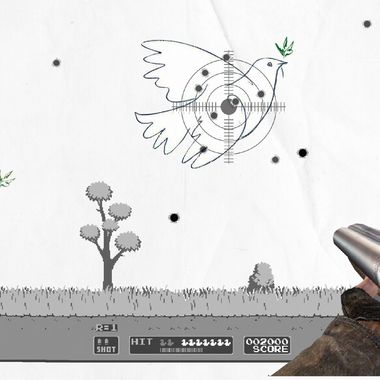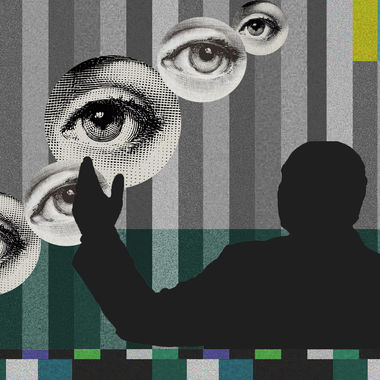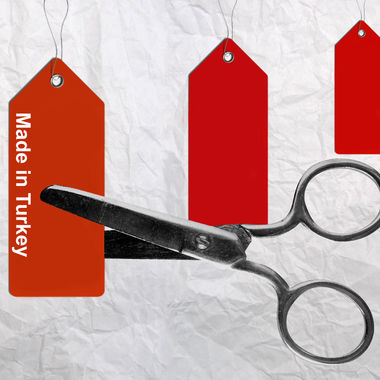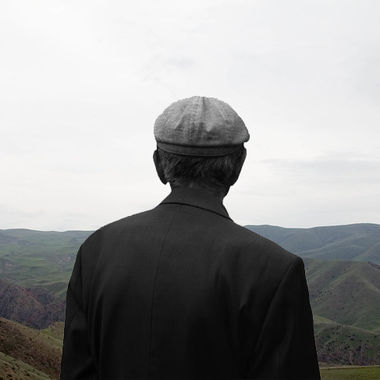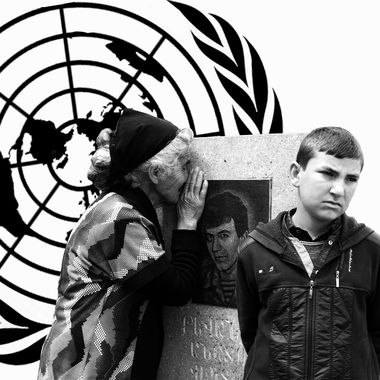Mon Jan 11 2021 · 7 min read
EU Adopts New Powerful Tool to Punish Global Human Rights Violations

By Anna Barseghyan
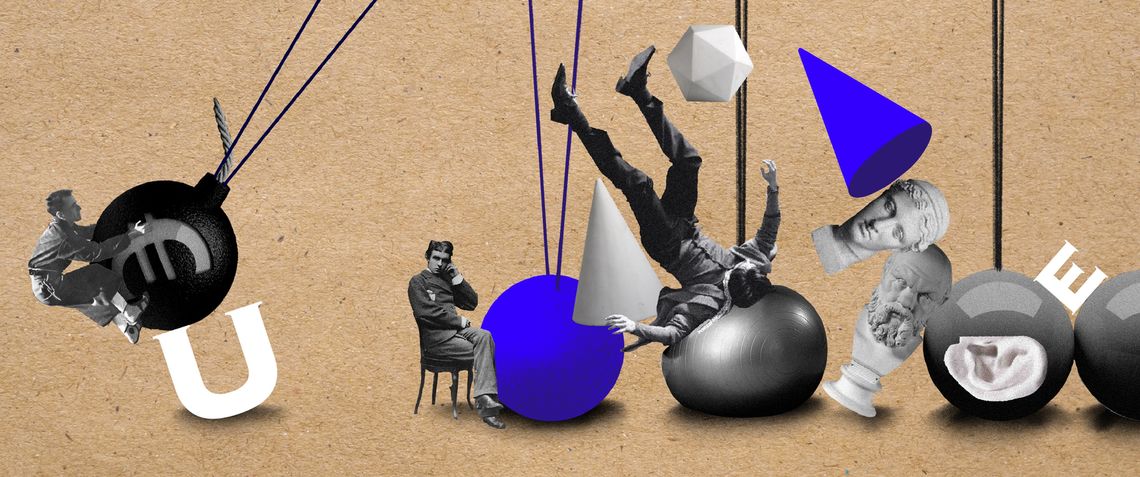
Illustration by Armine Shahbazyan.
Sergei Magnitsky was an accountant who died in a Russian jail cell in 2009 at the age of 37. He had uncovered an embezzlement ring that was defrauding public funds from the Russian state. The subsequent outrage in Western countries at the brazen violation of his human rights eventually led to a series of laws in different jurisdictions, known as the “Magnitsky Act.” In December 2020, the European Union passed its own version of the sanctions-enabling legislation, though it carries the less direct name of “Action Plan on Human Rights and Democracy.”
The move equips the EU’s foreign policy arsenal with a powerful new tool to protect human rights. Previously, most documents adopted by the EU concerning overseas human rights violations were limited to a declarative nature, rarely solving the underlying problem of weak human rights protections in countries beyond the EU’s borders. When sanctions were imposed, for example against Iran, they covered the entire country, which made the EU hesitant to implement them against countries with which it had important trade relations, such as Russia, which is a major source of European natural gas imports.
Under the new “Magnitsky-style” legislation, the EU will be able to impose travel bans against and freeze the EU-domiciled assets of individuals, corporations and state entities that are guilty of gross human rights violations. Even if the guilty party has no presence in Europe, the bans include prohibiting other persons or companies from making funds or economic resources available to them. Because of the EU’s global economic power, this approach allows it to enforce human rights protections even in countries that are not EU member states.
The new global human rights sanction regime has a wide scope of applicability, covering cases of genocide, crimes against humanity, torture, slavery, extrajudicial killings, enforced disappearance of persons, arbitrary arrests, etc. When the abuses are widespread, systematic or otherwise of serious concern, it can also cover human trafficking, sexual and gender-based violence, and violations or abuses of the freedoms of peaceful assembly, expression and religion. The spectrum is wide enough to offer an important toolkit for democracy promotion and human rights protection, if the political will to use it is there.
However, it should be noted that one item that is left off the list is corruption, which is a critical issue for most authoritarian states. Also, while the prospect of being targeted by sanctions will hopefully act as a deterrent, no preventative measures are available in the time period before the human rights violation takes place. Should a genocide already be committed before the EU intervenes? In the modern era, it is easy enough to be aware of intentions of serious human rights violations and prevent them before they actually occur.
Another important issue is the recent war crimes and severe humanitarian law breaches by Azerbaijan during and after the 2020 Artsakh War. For instance, attacks targeting civilians and civilian infrastructure are war crimes, according to the Rome Statute of the International Criminal Court and the Geneva Conventions. According to Human Rights Watch (HRW), Azerbaijan has repeatedly used widely banned cluster munitions in residential areas in Nagorno-Karabakh, which inflict “widespread indiscriminate effect and long-lasting danger to civilians.” Denis Krivosheev, Amnesty International’s acting Head of Eastern Europe and Central Asia, speaking about the usage of cluster bombs in Artsakh, noted that “The use of cluster bombs in any circumstances is banned under international humanitarian law, so their use to attack civilian areas is particularly dangerous.” Another example is the use of Syrian mercenaries, recruited by Turkey, in the 2020 Artsakh War, which is also forbidden. Will the EU impose the new sanction regime against Azerbaijan or slip into the old habit of applying double standards?
The Council of the European Union, which makes up the legislative body of the EU together with the European Parliament and European Commission, has approved both a Regulation and a Decision concerning restrictive measures against serious human rights violations and abuses. EU regulations are legally binding and should be immediately enforced in all member states. EU decisions are more flexible and applicable only to the entities it specifically names. It should be noted that this is the first time the EU has adopted a document with a legally binding nature referring to human rights violations.
The main target of the sanction regime could be either individuals or legal entities who bear responsibility for the human rights violations mentioned earlier. Another important aspect of the document is that it could include both state and non-state actors, regardless of whether they commit violations and abuses in their own state, in other states or across borders. The U.S. version of the Magnitsky Act has not sanctioned heads of state directly. For example, individuals associated with Saudi Arabia's Mohammed Bin Salman, Myanmar's Aung San Suu Kyi and China's Xi Jinping have been targeted but not the national leaders themselves. It remains to be seen what direction the EU will take in applying the sanctions.
The use of sanctions themselves is not a new practice for the EU. For instance, during the last 25 years, the EU has imposed sanctions against individuals from Belarus who were responsible for violence, repression and the falsification of election results. However, the main criticism against the EU had been that it did not have a foreign policy tool that could be used against human rights violations. The tables finally turned after the 2019 EU parliamentary election. Compared to the previous Jean-Claude Juncker-led EU Commission, which followed a foreign policy based on principled pragmatism, the new EU "government" has increased its attention to the EU's role as a protector of democracy and human rights. Just a couple of months after the May election, in December 2019, the EU Council welcomed the launch by High Representative for Foreign Affairs and Security Policy Josep Borrell of preparatory work to establish an EU regime of general scope for restrictive measures against serious human rights violations and abuses.
As the initiative was made by the High Representative, a EU foreign policy architect, it served to show that human rights issues are once again at the top of the EU’s priorities. Moreover, the new sanction regime is part of the EU Action Plan on Human Rights and Democracy 2020-2024, which prioritizes the protection of human rights and the promotion of democracy in relations to third countries.
The document sets out EU ambitions and identifies priorities for action around five interlinked and mutually reinforcing lines of action:
-
Protecting and empowering individuals;
-
Building resilient, inclusive and democratic societies;
-
Promoting a global system for human rights and democracy;
-
New technologies: harnessing opportunities and addressing challenges; and
-
Delivering by working together.
In line with the sanction regime, the EU will try to use other measures, such as "public diplomacy and communication campaigns, EU statements and declarations, and thematic and country-specific resolutions in multilateral human rights fora,” as mentioned in the document. They also include more discreet diplomacy tools, such as démarches, political dialogues and regular human rights dialogues, and sectoral policy dialogue. “Over the years, human rights dialogues established with more and more countries have proven to be a key tool for advancing the EU's human rights agenda as part of its broader political relationships."
The procedure will be the following: the member states or the High Representative of the EU for Foreign Affairs and Security Policy can submit a proposal to the Council of the European Union to establish, review and amend the list of those individuals and entities that are subject to EU Human Rights Sanctions. The proposal will be accepted by unanimity among all member states. However, enforcing the EU Human Rights Sanctions, including determining the applicable penalties for the infringement of the restrictive measures, falls within the competency of member states.
The implementation of the sanction regime could be a good testimony for the EU, which seems to take steps to be back to the values of normative power. It could also have a positive influence on the EU's immediate neighborhood including the Middle East and North Africa (MENA), and Eastern Partnership (EaP) countries. With regard to its foreign policy, the EU has been criticized for not being decisive with authoritarian regimes such as Saudi Arabia. While the EU made broad statements about democracy promotion, it simultaneously maintained business affairs with the dictators of neighboring regimes.
In 2011, the EU tried to commit itself to deep democracy, which was reflected in the revised document of the European Neighborhood Policy. The main pillar of the document was democracy promotion, institutional transformation, strengthening basic law and human rights, maintaining good governance, reforming the judiciary system, combating corruption, supporting economic modernization and integrating into the global economic system.
After severe criticism, the EU made crucial changes in foreign policy in 2016. By adopting the EU global strategy, the EU prioritized the pragmatic cooperation with its partner countries. The same pragmatic line was also kept in the further strategic documents of the European Neighborhood Policy and the Eastern Partnership. For instance, in March 2020, the EU adopted a document entitled "The Eastern Partnership Beyond 2020," which is the main guide to its relations with six neighboring countries. One of the weak points of the document was the absence of democratization measures. It was perceived that the EU was regressing from the initial goals of the EaP to transform the wider region into a democratic neighborhood. With that pragmatic approach, the EU wanted to conduct business with the neighboring countries without deeply interfering with a reform agenda. The new sanction regime raises the hope that the EU will pay more attention to democracy and human rights violations across the globe. It will be a litmus test for the EU to demonstrate its commitment to its declared values. Armenians in particular will be paying close attention to how it will be used.
suggested reading
War Crimes and Possible Ways to Achieve Justice
By Ara Khzmalyan
Different international courts have jurisdiction over different areas of international law. Ara Khzmalyan explains the avenues available for demanding accountability for the war crimes committed against Artsakh.
International Human Rights Organizations and Victim-Blaming
By Karena Avedissian
International human rights defending organizations have been speaking in a language of “neutrality” which, in the context of the war crimes committed by Azerbaijan during and after the 2020 Artsakh War, is anything but objective, writes Karena Avedissian.
Belarus Was Sanctioned, Why Not Azerbaijan?
By Harout Manougian
Western countries imposed sanctions on Belarus’ Aleksandr Lukashenko for cracking down on democracy and attacking civilians. Ilham Aliyev has actually been more brutal but has not been penalized.
Armenia to Ban Turkish Products
By Astghik Karapetyan
Taking into account Turkey’s overt support to Azerbaijan during the 2020 Artsakh War, Armenia’s government has decided to ban the import of Turkish goods for six months. The ban will take effect on December 31 of this year.
Remedial Rights in International Law and Their Relevance to Artsakh
By Sossi Tatikyan
In light of the existential threat, high probability of ethnic cleansing and the already imminent humanitarian crisis in Artsakh, the international community has an obligation to grant remedial recognition to Artsakh.
The UN, International Organizations and States Are Obligated to Provide Humanitarian Aid to Nagorno Karabakh: Here Is Why
By Hovhannes Nikoghosyan
The humanitarian emergency in the Republic of Nagorno Karabakh requires the engagement of humanitarian and donor organizations, without regard to its international recognition, its present or future status.


